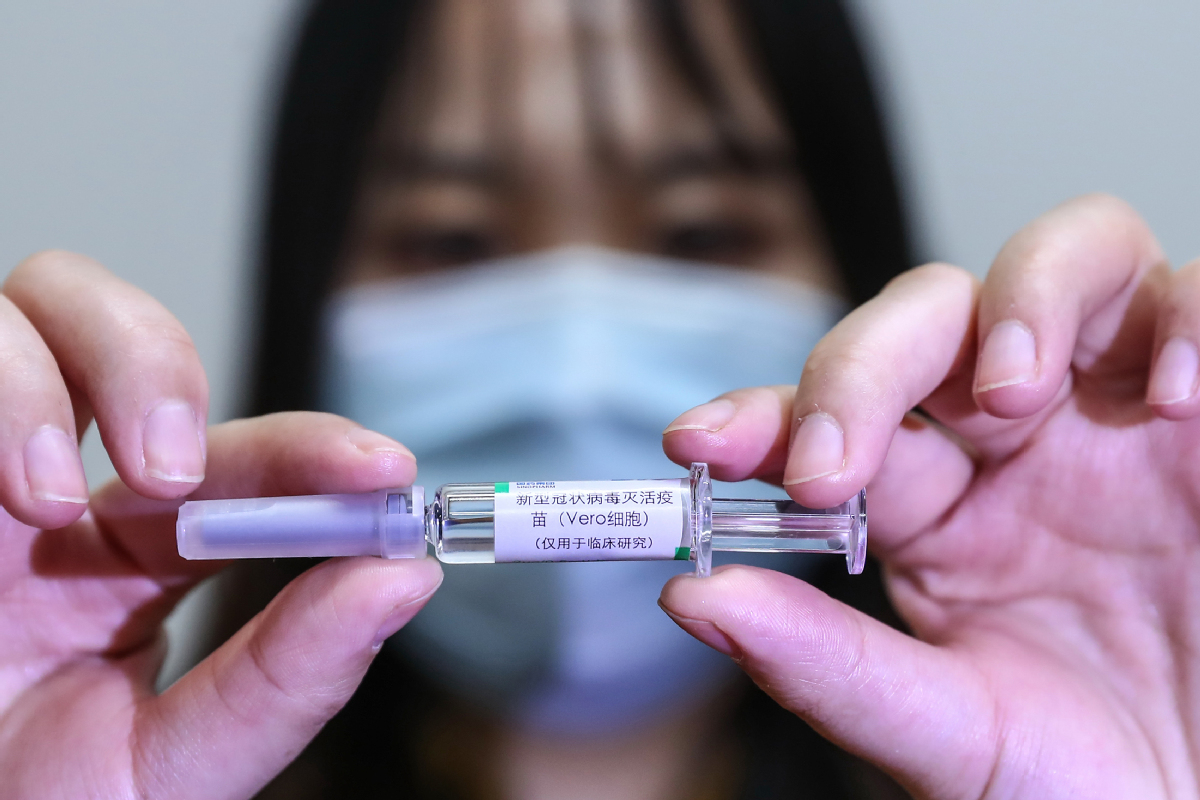Sinopharm unit inches toward vaccine breakthrough
By Liu Zhihua | China Daily | Updated: 2020-04-30 10:42

State-owned CNBG teams up with partners to step up development of effective, lasting treatment for COVID-19
Chinese State-owned pharmaceutical giant Sinopharm Group has made substantial progress in developing vaccine candidates for the novel coronavirus that causes COVID-19.
China National Biotech Group Co Ltd, Sinopharm's vaccine and bioscience unit, announced on Monday that its second inactivated vaccine targeting the contagion won clinical trial approval from the National Medical Products Administration. The vaccine is codeveloped by a unit under CNBG-Beijing Institute of Biological Products Co Ltd-and the Chinese Center for Disease Control and Prevention.
On Friday, CNBG launched phase-2 human trials of its first inactivated vaccine, which is codeveloped by its unit, the Wuhan Institute of Biological Products, along with the Wuhan Institute of Virology under the Chinese Academy of Sciences.
Approved for clinical trials on April 12, the vaccine was the first inactivated vaccine worldwide to reach such a developed approval stage. The NMPA authorized its phase-1 and phase-2 human trials at the same time on that day through a fast-track channel based on solid results from preclinical trial studies.
"The world is racing to develop COVID-19 vaccines, yet it is not a competition between countries, but rather a race between humans and the virus," said Yang Xiaoming, president of CNBG.
Yang said it is quite encouraging to have developed inactivated vaccines against COVID-19.
Inactivated vaccines use nonliving viruses, bacteria or other pathogens that have lost disease-producing capacity to stimulate the immune system to develop an immune response.
Wang Junzhi, an academic at the Chinese Academy of Engineering, said China has laid a solid foundation to research inactivated vaccines in recent years, and inactivated vaccines have been widely used to fight hepatitis A, influenza, poliomyelitis, and hand, foot and mouth disease.
Yang added that China has distinctive advantages in developing vaccines against the disease thanks to the country's institutional features that can unite resources and efforts of different participants to concentrate on a specific program and target.
























